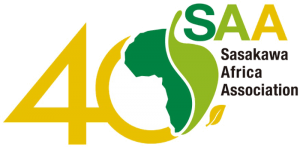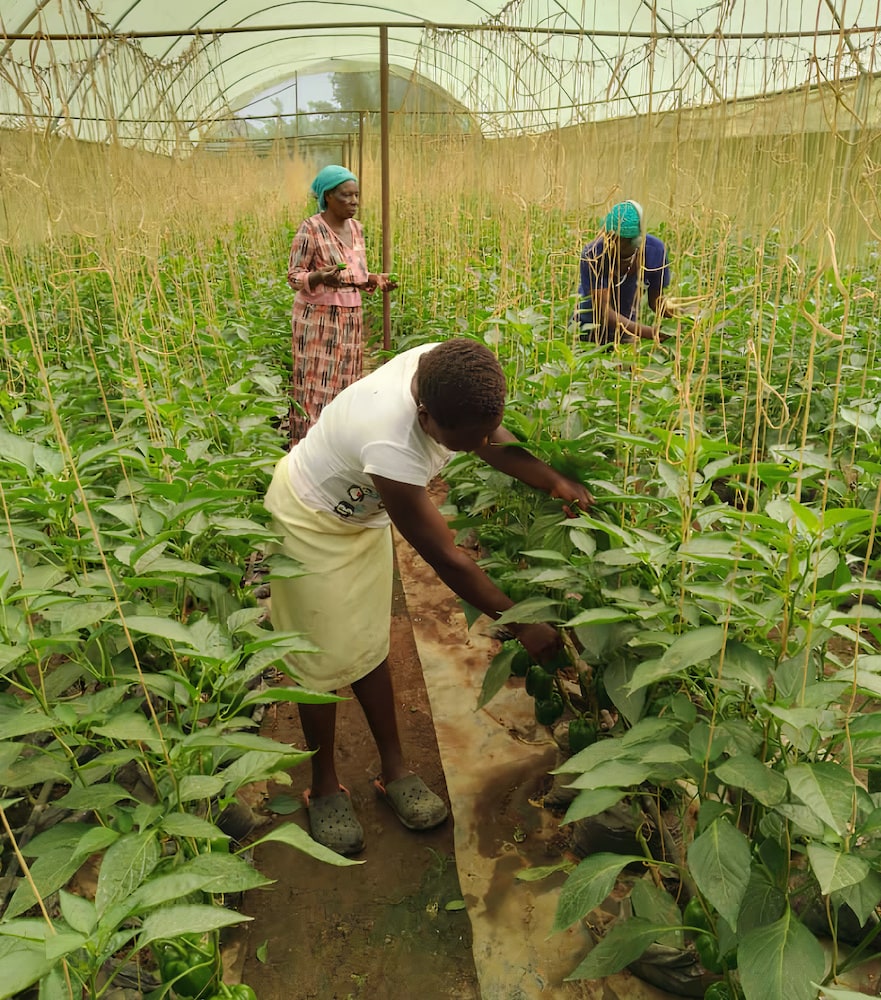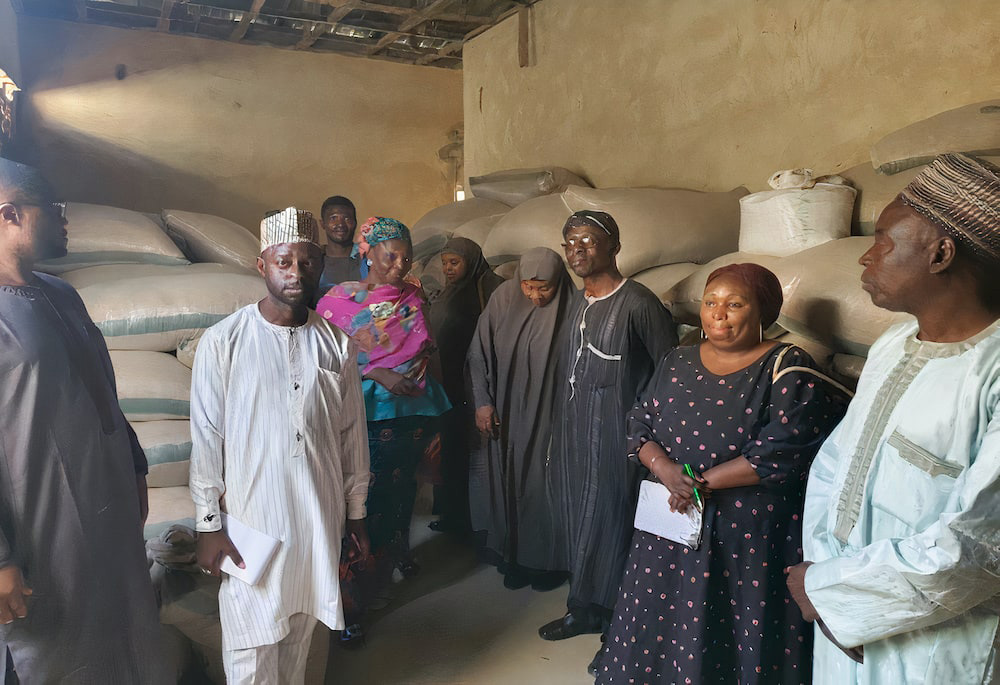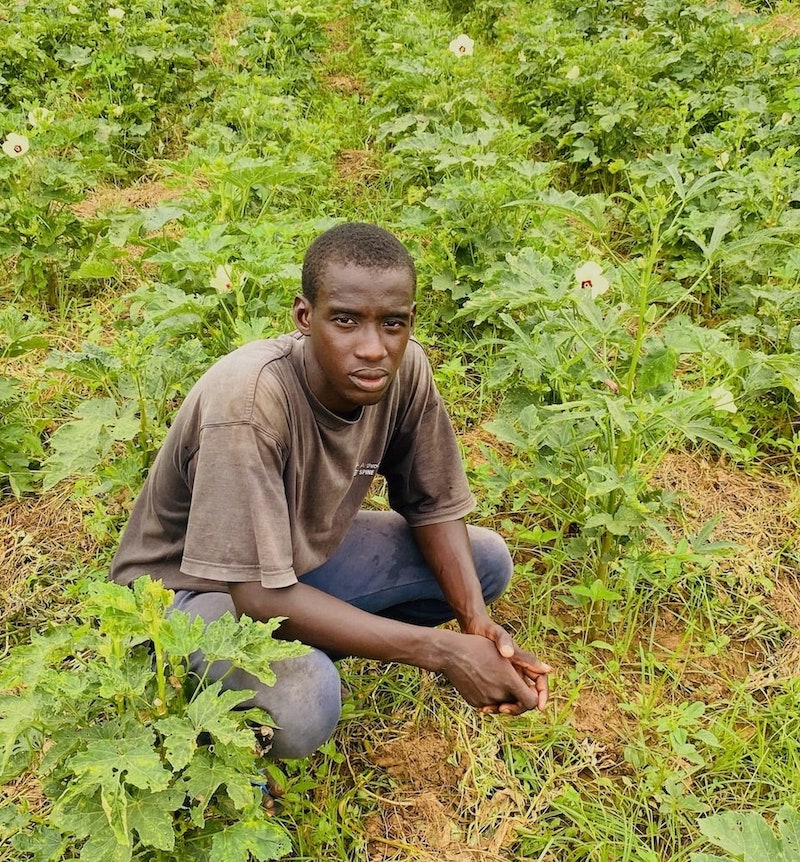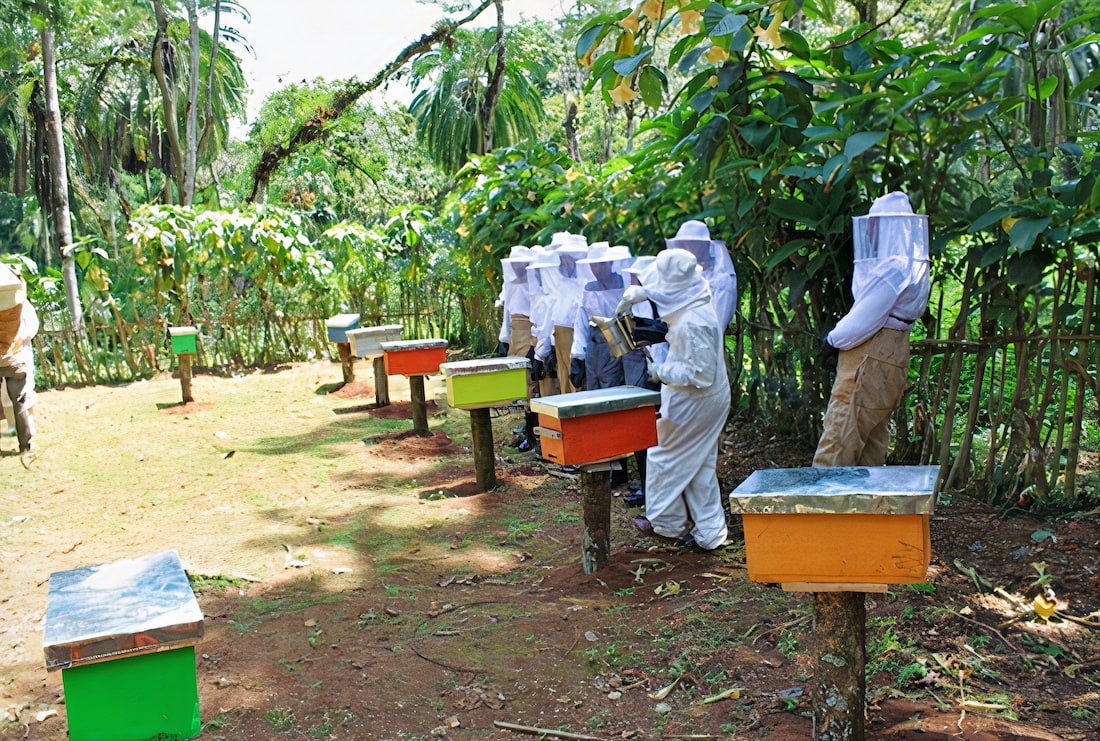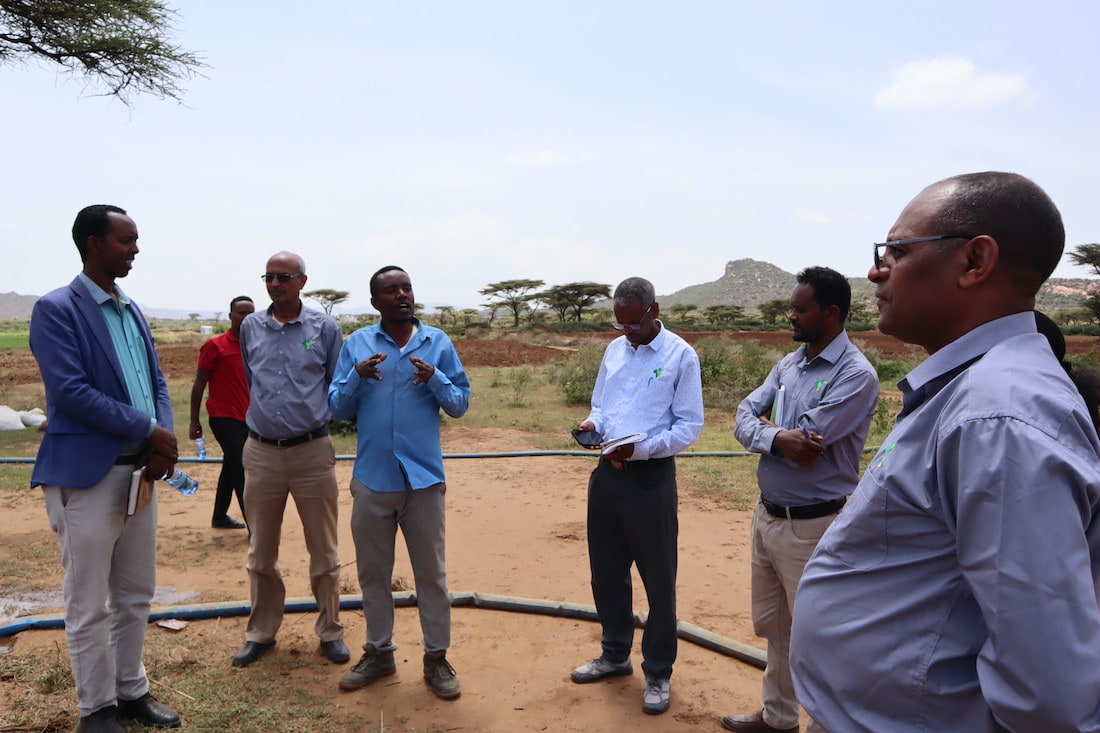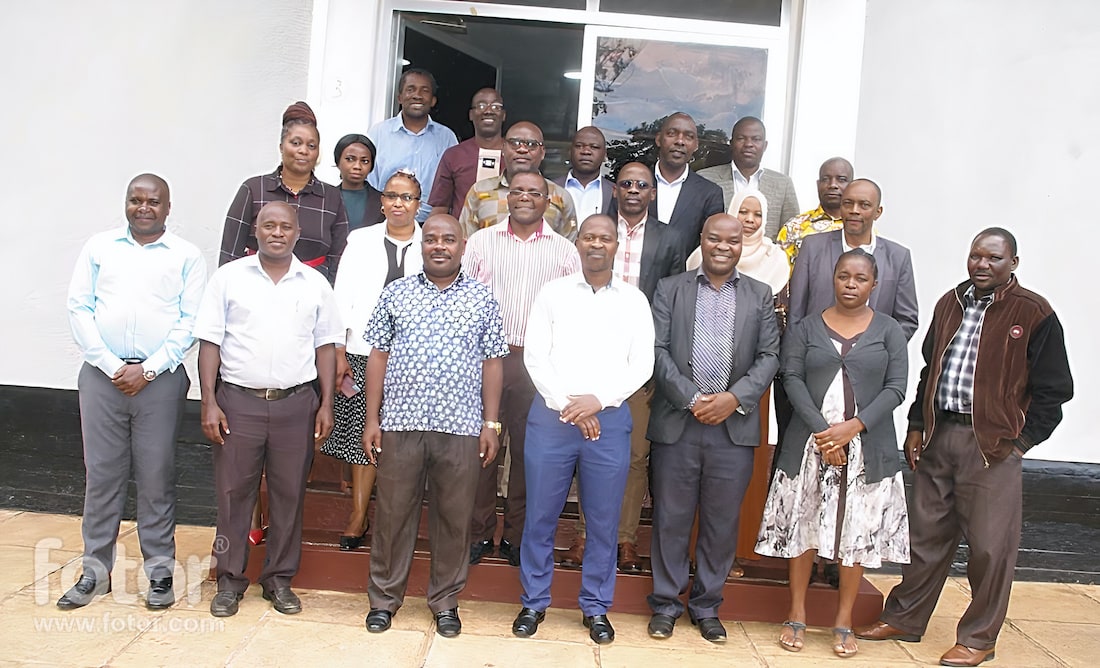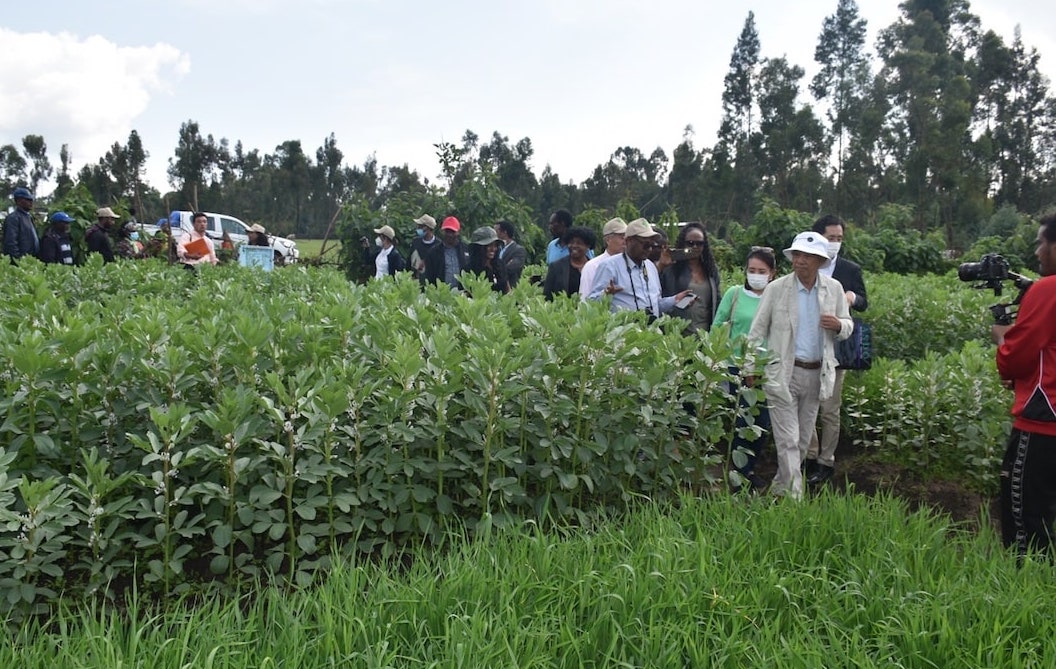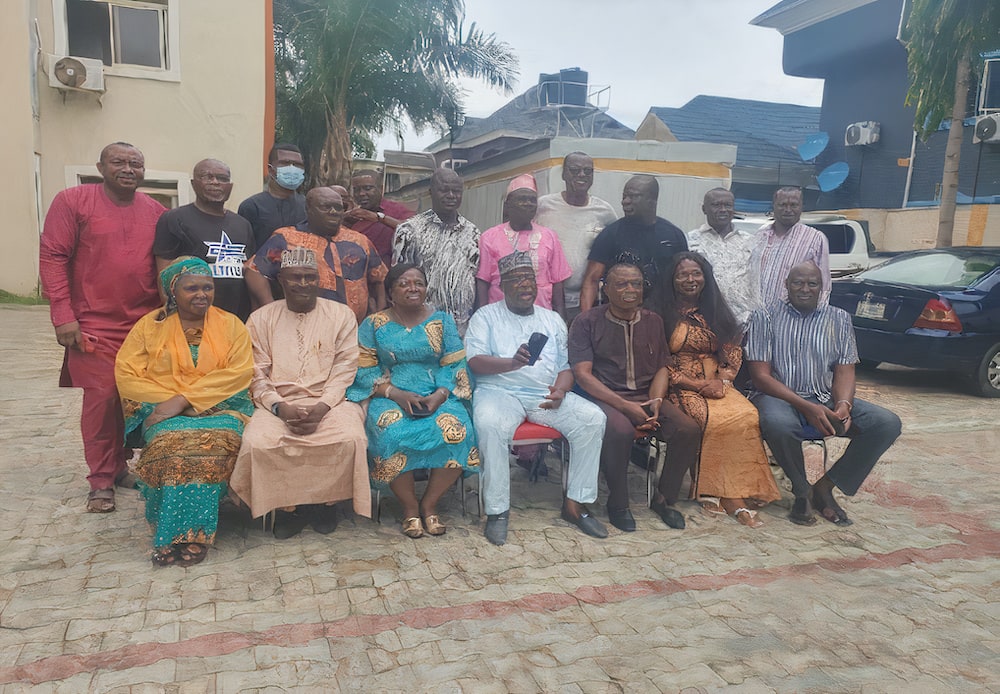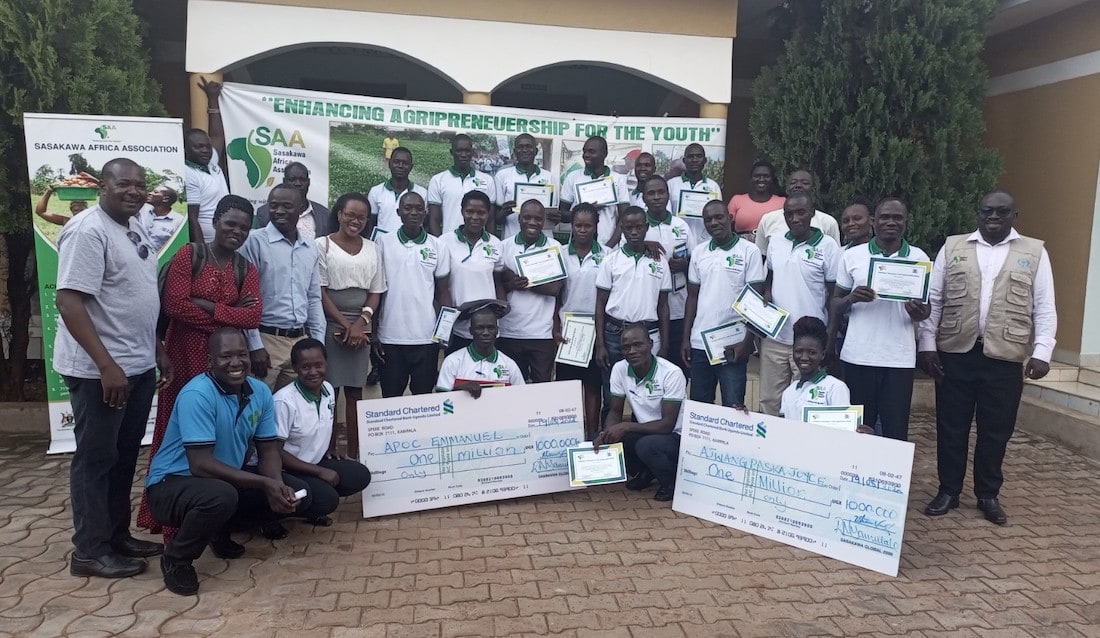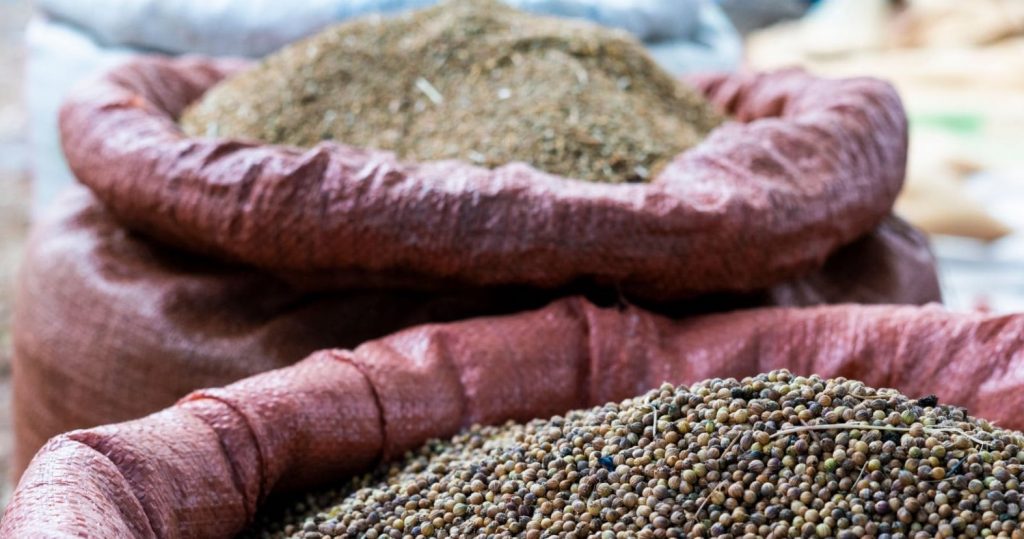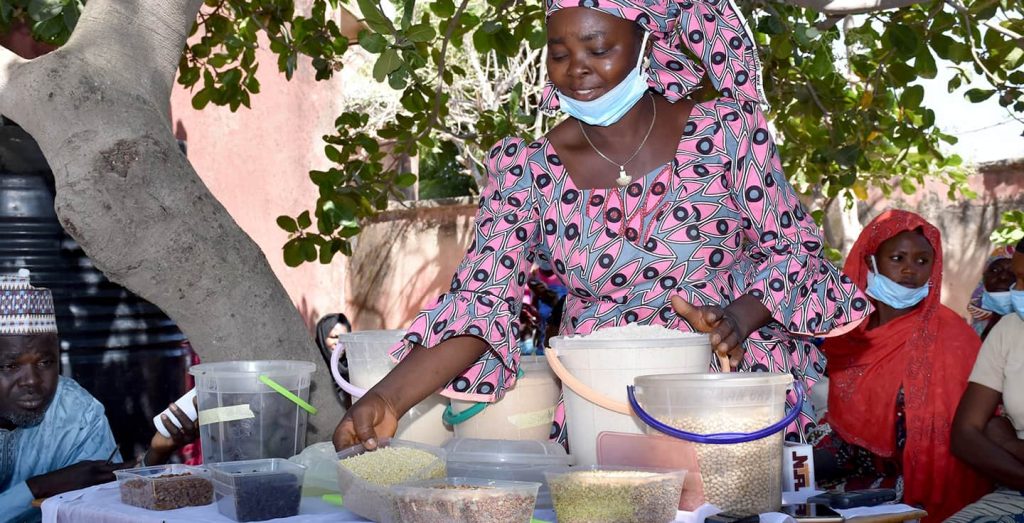Impacting Skills In Agriculture
November 2022
Message from the President
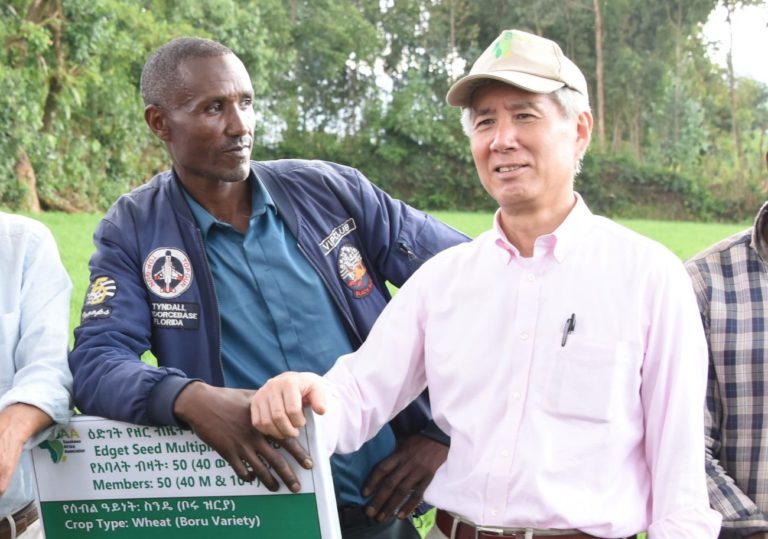
Message from the President
SAA’s Capacity Building Program, formerly the Sasakawa Africa Fund for Extension Education (SAFE), is operating in partnership with 31 universities and agricultural colleges, in 11 African countries. Its demand-driven curriculum aims at upgrading and equipping extension agents with the necessary skills to meet the varying Agriculture needs of rural communities along the agricultural value chain. Students in the program are exposed to various participatory extension methodologies, as well as practical skills and knowledge. The program also features an action-oriented research practice, called the Supervised Enterprise Project (SEP). This sees students work with farming communities to identify and solve challenges. The student projects are supervised by lecturers and SAA’s technical staff. To date, over 6,800 students have graduated from the Capacity Building Program at the Diploma, Bachelors (mainly), Masters and PhD level.
Meanwhile, compared to 30 years ago when the SAFE program was launched, the prevalent situation has significantly changed. There are now many global challenges such as climate change, soil degradation, the COVID pandemic, and price increases for fuel and fertilizers which are factors that affect farming communities. However, more positively, ICT has become a powerful and effective tool for reaching more farmers and other value chain actors. Extension systems also no longer necessarily rely on public schemes alone. These changes imply that agricultural extension advisory services in Africa have become more diverse and dynamic.
In light of this situation, our capacity-building program has evolved to be more holistic and responsive to existing needs. Accordingly, it now constitutes two components: 1) long-term training for incumbent extension workers in collaboration with universities and agricultural colleges, and 2) short-term trainings, for extension workers, youths and other agricultural value chain actors, on specific themes and issues in line with SAA’s strategic pillars: regenerative, nutrition sensitive and market-oriented agriculture. In addition, need based technical assistance in the form of various workshops and seminars is being provided.
We consider the long-term collaboration with partner universities and agricultural colleges as our assets and, together, we will continue Walking with the Farmer.
Voices from the field
Voices from the field
Practising farming as a business: The success story of a SAFE alumnus in Uganda
After graduating with a bachelor’s degree in Agricultural Extension Education from Uganda’s Makerere University in 2002, Vicky Nyakatuura Bagenda, a SAFE alumnus, secured a job at the Mukono District Local Government. After a few years, she decided to actively engage in farming as a business, establishing a model farm that now serves as a training center for her community. Her farm currently has six ongoing enterprises, including: three greenhouses with sweet pepper being grown; five fishponds with tilapia and catfish; a semi-free range poultry enterprise with 563 chickens (all locally-hatched), 117 rabbits; vegetables, including tomatoes, cabbages, parsley, kale, spinach and amaranths; and spices such as peppermint, stevia and basil. The enterprising farmer says her products have a demand that she cannot satisfy. In addition, Ms. Bagenda trains students from secondary schools and universities, youth farmer groups and local farmers, charging USD5 per day, each day represented by a two-hour lesson. In the last two years, she has hosted 50 students from a secondary school within her district, a youth farmer group from Luwero district and 32 farmers from her church who each paid USD8 for a two-day course. In addition, she hosts and supervises university students attending internships.
Voices from the field
Voices from the field
Successful seed multiplication venture in Nigeria
After joining the SAFE program in 2005 at the Ahmadu Bello University in the Zaria City of Nigeria’s Kaduna State, Dr. Nuhu Saddiq selected seed multiplication for his Supervised Enterprise Project (SEP) assignment. The SEP is an action-oriented field research component of the SAFE program. Following up on the entrepreneurial skills gained from the SEP, he established a seed company that was certified by the National Seed Council, and now provides quality seeds to the Food and Agriculture Organization (FAO), International Fund for Agricultural Development (IFAD), and the state governments of Kaduna, Zamfara, Adamawa and Kebbi States. The company, which employs more than 40 workers, has distributed over 20,000 MT of seed over the last three years, with an average revenue of USD30,000 per year. It works through a network of over 200 contract farmers, who are trained to supply different categories of foundation, and certified seeds. Additionally, the company has since 2018 been training and mentoring new cohorts of SEP and university students under the SAA program on private extension service provision.
Voices from the field
Voices from the field
Award winning agri-entrepreneur becomes a role model for youth in Mali
Having graduated with a bachelor’s degree in agro-economics, from the Rural Polytechnic Institute and Applied Research (IPR/IFRA) in Mali’s Katibougou region, Cheick Djibril Diallo ventured into market-oriented gardening. He used his family’s land in the Samé village of Mali’s Kayes region to grow an agribusiness enterprise, that has helped him fight unemployment. He successfully cultivates cucumbers, okra, lettuce, eggplant and pepper, driven by the training in agricultural entrepreneurship, business planning and post-harvest management, organized by SAA in partnership with the Agricultural College of Samé (CAA Same) and the Kayes Regional Directorate of Agriculturie in March 2022. Recognizing his dedication and commitment to farming, Diallo was named a model farmer, and rewarded with gardening equipment, including a motor pump for irrigation, and a wheelbarrow. The market-oriented agriculture training has helped him boost his vegetable production, which now earns him about 300,000 francs CFA (USD517) as profit per quarter. In addition, he continues to create more job opportunities in his community.
Voices from the field
Voices from the field
SAFE alumnus transforms Supervised Enterprise Project (SEP) into a flourishing beekeeping business
After eight years as an Extension Agent at Ethiopia’s Ministry of Agriculture, Wubshet Adugna joined the SAFE program at Haramaya University (then Alemaya University) in 1998, selecting beekeeping as his Supervised Enterprise Project (SEP). He used his SEP assignment to demonstrate the economic differences of modern and traditional beekeeping practices to 120 farmers, and later – in 2003 – started his own beekeeping enterprise by setting up 50 beehives on 50 hectares of land in the Bonga area of Ethiopia’s southern region.
Three years later, he established a honey and wax processing company, Apinec-Agro Industry PLC, which received the Food Safety Management Systems Certification by fulfilling the international requirements for food safety and hygiene. Apinec-Agro industry PLC, has so far, exported 400 tons of natural honey and 20 tons of beeswax to Norway, the Netherlands, Japan and the United States, with its supplies coming from 2000 (950 women) organic honey out growers organized into 14 Forest User Groups.
Mr. Adugna also founded the Apinec-Apiculture TVET College to train farmers, development agents, youth and other experts on bee product development, beekeeping and processing, queen bee rearing and breeding, and hive manufacturing. More than 200 women beekeepers from his program now manufacture and sell affordable hives from locally available materials. Today, his two companies, Apinec-Agro industry PLC and the Apinec-Apiculture TVET College have 28 permanent employees.
Crediting the SAA Capacity building program for his success, Adugna plans to collect 300 tons of honey and produce 1.3 million bees wax foundation sheets, to cater for the increasing demands of the local and international markets period.

Programs and activities
Programs and activities
SAA-Uganda provides internship opportunities to university students
Over the years, SAA has provided internship opportunities to hundreds of university students. This year, SAA-Uganda received 22 students pursuing Bachelor’s degrees in various agriculture related areas, including agricultural extension, agribusiness and soil sciences at the Makerere and Busitema Universities. These were assigned to SAA’s intervention sites and supervised by the SAA staff together with field extension workers. For the Makerere University students, their internship program (Supervised Enterprise Project), consists of two phases: Phase one involves community-entry processes and participatory assessment of the agricultural problems the farming communities face. Phase two covers the practical solutions for prioritized challenges in the farming communities.
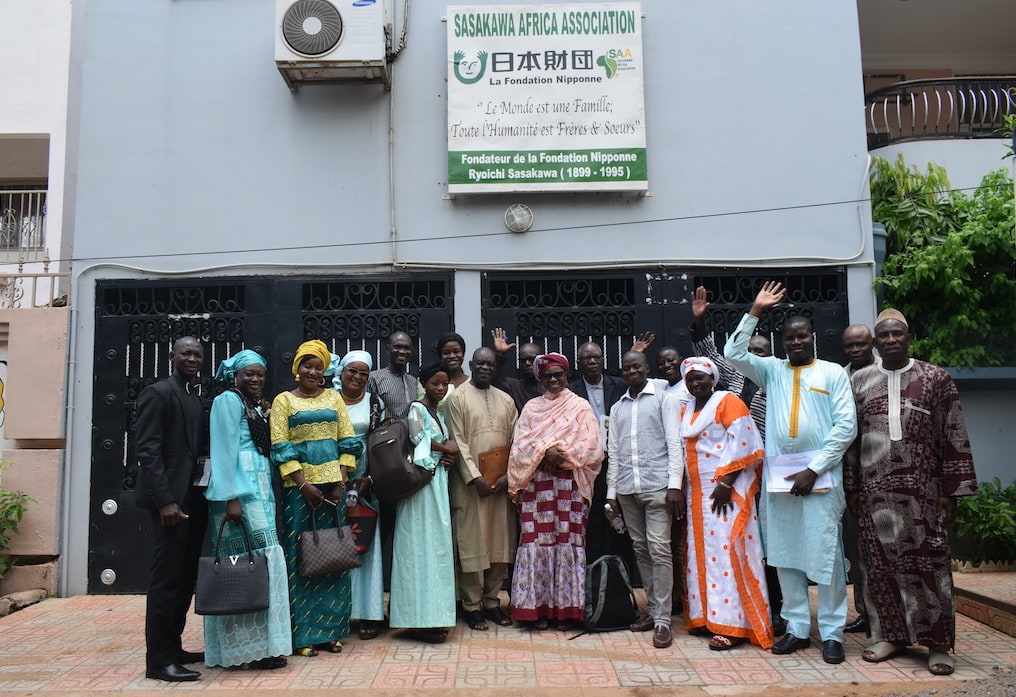
Programs and activities
Programs and activities
SAA Mali supports students in action-oriented research
The Supervised Enterprise Project (SEP) is an important component of the demand-driven curriculum for students at SAA’s partner agricultural universities and colleges. Students, who are mainly extension agents, conduct the action-oriented research projects to address agriculture related challenges faced by rural communities. In 2022, SAA Mali has provided support to 16 students (eight women) from the Samanko, M’pessoba and Samé colleges, as well as the Rural Polytechnic Institute and Applied Research (IPR/IFRA). The students were selected based on their academic performance and relevance of their research topic to SAA’s initiatives, as well as the quality of their proposals. The selected SEP topics included: the effectiveness of improved agronomic technologies like drought-resistant varieties of maize, sorghum, millet and sesame; use of organic fertilizers (compost and manure); organizational support of producers’ groups, income-generating activities for women (agro-food processing, small-scale poultry and small ruminant farming, etc.), soil conservation and reforestation.
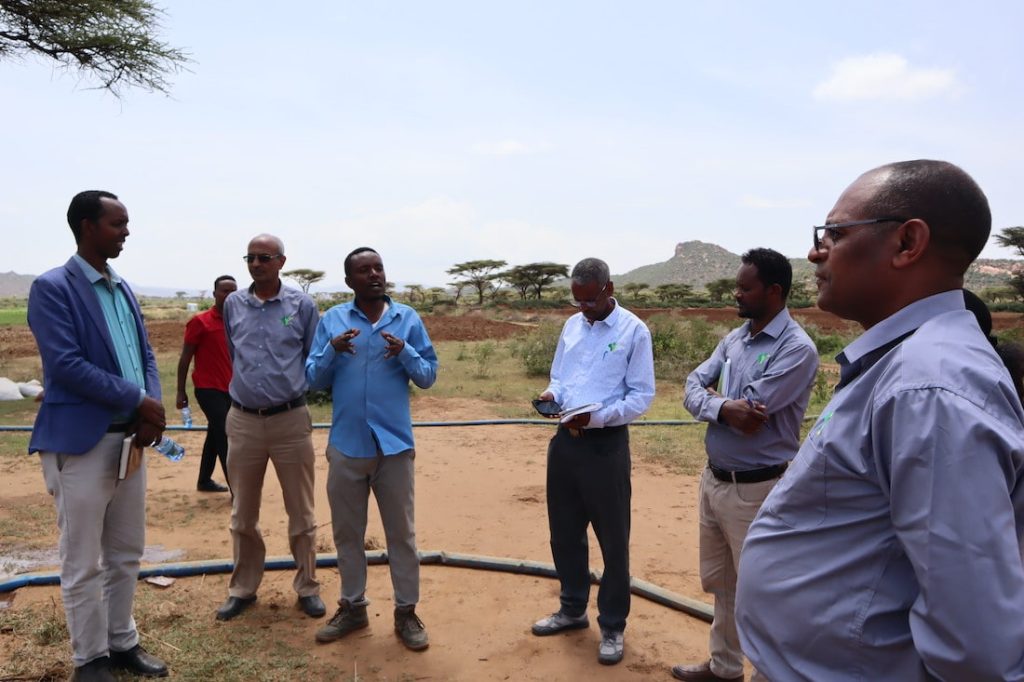
Programs and activities
Programs and activities
SAA team visits capacity building program in Ethiopia
Between June 12 and June 16, 2022 SAA-Ethiopia staff made a monitoring visit to assess the status of the capacity building program in Jigjiga University. The SAA team observed that the nursery site established with financial support from SAA is now serving its intended purposes, with students already attending practical training on seedling production and related topics. About 80,000 seedlings of assorted trees were planted at the site, including neem, schenus molle, leucaena leucocephala, spathodea nilotica, orange, mango, avocado, lemon, papaya, Guava, and anboshog. More than 60,000 different tree seedlings were distributed to farmers in the local community, magnifying SAA’s contribution to the national green legacy program, and thereby helping mitigate climate change.

Programs and activities
Programs and activities
SAA Ethiopia introduces university lecturers to field level innovations
SAA organized an experience sharing workshop for lecturers on May 19, 2022 at Bahir Dar University, which was attended by 25 lecturers (six women) from nine universities. The objective of the workshop was to share SAA’s field level practices and innovations, which the lecturers could share with their students as cases and success. SAA’s Technical Coordinators (TCs) presented the concepts and implementation modalities of SAA’s strategic pillars, i.e., Regenerative Agriculture (RA), Nutrition Sensitive Agriculture (NSA) and Market Oriented Agriculture (MOA) as well as the Supervised Enterprise Projects (SEPs) with practical examples from field level interventions. In-depth discussions were also held with the lecturers confirming that the workshop had created a better understanding of SAA’s field level interventions.
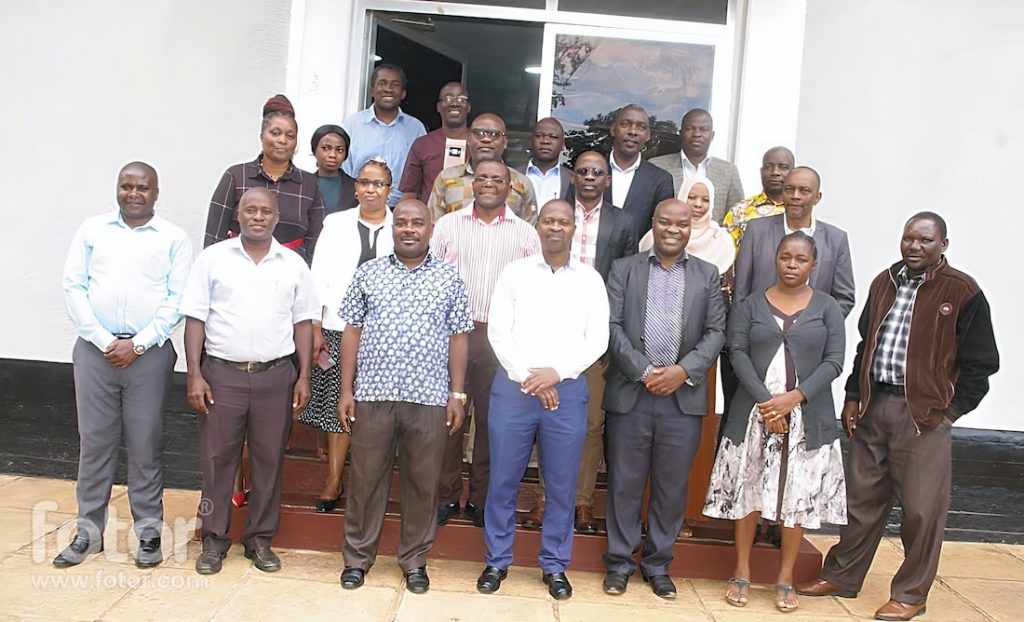
Programs and activities
Programs and activities
SAA strategic direction and interventions popularized among lecturers in Tanzania
On July 14, 2022, SAA organized a training of trainers (ToT) session at Tanzania’s Sokoine University of Agriculture (SUA), covering topics on Regenerative Agriculture (RA), Nutrition Sensitive Agriculture (NSA), and Market Oriented Agriculture (MOA). A total of 20 lecturers (five women) participated in the training, with the aim of exposing the participants to the current SAA strategic concepts and intervention areas . Further to equip them with the knowledge and skills to identify segments of RA, NSA, and MOA for effective integration in the Supervised Enterprise Projects (SEPs) of students. The trained lecturers agreed to integrate some RA, NSA and MOA components into existing courses of the mid-career training program.

Programs and activities
Programs and activities
eLearning management training for lecturers in Ethiopia
From June 23 to 24, 2022, a training of trainers (ToT) session focusing on the e-Learning management was conducted in Addis Ababa, Ethiopia. In attendance were 23 lecturers (four women) from eight universities, which demonstrated a willingness to adapt the e-learning system for program delivery.
The training covered different topics including: user account management, uploading content on the eLearning platform, preparation of audio-visual supported lessons, as well as hands-on photography and videography skills.
As a result of the training, participants were able to produce audio and video files, and uploading them on the e-Learning platform. They have got basic skill and knowledge to utilize the eLearning platform and promised to train other lecturers at their respective universities to cascade the knowledge and skills they acquired. Currently, Jigjiga University has adapted the e-Learning platform and is preparing to officially launch it.
EVENTS
Events
Nippon Foundation Chair Mr. Yohei Sasakawa visit to SAA interventions in Ethiopia
Between August 30 and 31, 2022, Mr. Yohei Sasakawa, the Chairman of The Nippon Foundation, accompanied by the SAA Board Chair, Prof. Ruth Oniang’o, and SAA President Dr. Kitanaka Makoto visited the SAA’s intervention sites in the Angacha and Negele Arsi Districts of Ethiopia. Joining them were management and staff from the Ministry of Agriculture (MoA), and SAA’s country and Strategic Partnership Offices. Among the program sites visted by the team were regenerative agriculture demonstrations at Farmer Training Centers and host farmers’ fields, community based seed multiplication fields, e-kakashi pilot project, a milling facility, permagardening, agricultural machinery, hermetic storage, and an agro-dealer shop. The progress site of the PREMAP Project, funded by the Japanese Ministry of Foreign Affairs, was also visited. Mr. Sasakawa noted that the increased adoption of improved technologies was as a result of farmers trust in SAA and their own commitment to transformation. He went on to emphasize the necessity of scaling up SAA’s work in Ethiopia and throughout Africa, while renewing his commitment to supporting SAA’s work.
Events
Nippon Foundation Chair Mr. Yohei Sasakawa visit to SAA interventions in Ethiopia
Between August 30 and 31, 2022, Mr. Yohei Sasakawa, the Chairman of The Nippon Foundation, accompanied by the SAA Board Chair, Prof. Ruth Oniang’o, and SAA President Dr. Kitanaka Makoto visited the SAA’s intervention sites in the Angacha and Negele Arsi Districts of Ethiopia. Joining them were management and staff from the Ministry of Agriculture (MoA), and SAA’s country and Strategic Partnership Offices. Among the program sites visted by the team were regenerative agriculture demonstrations at Farmer Training Centers and host farmers’ fields, community based seed multiplication fields, e-kakashi pilot project, a milling facility, permagardening, agricultural machinery, hermetic storage, and an agro-dealer shop. The progress site of the PREMAP Project, funded by the Japanese Ministry of Foreign Affairs, was also visited. Mr. Sasakawa noted that the increased adoption of improved technologies was as a result of farmers trust in SAA and their own commitment to transformation. He went on to emphasize the necessity of scaling up SAA’s work in Ethiopia and throughout Africa, while renewing his commitment to supporting SAA’s work.
Events
SAA-Nigeria team participates in revision of National Extension Manual
In June 2022, SAA-Nigeria’s Country Director and Capacity Building Program Coordinator participated in a national meeting to update and revise the National Extension Manual for agricultural extension practitioners in Nigeria, into which the SAA’s extension approaches were incorporated. The meeting was organized by the Federal Ministry of Agriculture and Rural Development (FMARD) with support from the USAID Feed the Future Nigeria’s Agricultural Extension and Advisory Services Activity.
Events
SAA-Nigeria team participates in revision of National Extension Manual
In June 2022, SAA-Nigeria’s Country Director and Capacity Building Program Coordinator participated in a national meeting to update and revise the National Extension Manual for agricultural extension practitioners in Nigeria, into which the SAA’s extension approaches were incorporated. The meeting was organized by the Federal Ministry of Agriculture and Rural Development (FMARD) with support from the USAID Feed the Future Nigeria’s Agricultural Extension and Advisory Services Activity.
Events
SAA trains Uganda’s youth on Agripreneurship
In August 2022, SAA organized a training on Agripreneurship for 36 youth (nine women) in the Kole and Mubende intervention communities. The selection of participants was guided by the capacity gap assessment results. The training sought to enable young potential entrepreneurs to access and utilize appropriate business skills, information and services aimed at achieving a sustainable and competitive business environment. It targeted those intending to start or were in early-stage businesses, or those with striving enterprises. The training focused on opportunity identification, marketing (including persuasion and negotiation), financial planning, business planning and analysis, as well as financial management. At the end of the course, a business plan competition was held, with the participants pitching their business ideas for funding. Four entrepreneurs from the competition were selected to receive seed funding worth one million shillings (USD267) each.
Events
SAA trains Uganda’s youth on Agripreneurship
In August 2022, SAA organized a training on Agripreneurship for 36 youth (nine women) in the Kole and Mubende intervention communities. The selection of participants was guided by the capacity gap assessment results. The training sought to enable young potential entrepreneurs to access and utilize appropriate business skills, information and services aimed at achieving a sustainable and competitive business environment. It targeted those intending to start or were in early-stage businesses, or those with striving enterprises. The training focused on opportunity identification, marketing (including persuasion and negotiation), financial planning, business planning and analysis, as well as financial management. At the end of the course, a business plan competition was held, with the participants pitching their business ideas for funding. Four entrepreneurs from the competition were selected to receive seed funding worth one million shillings (USD267) each.
